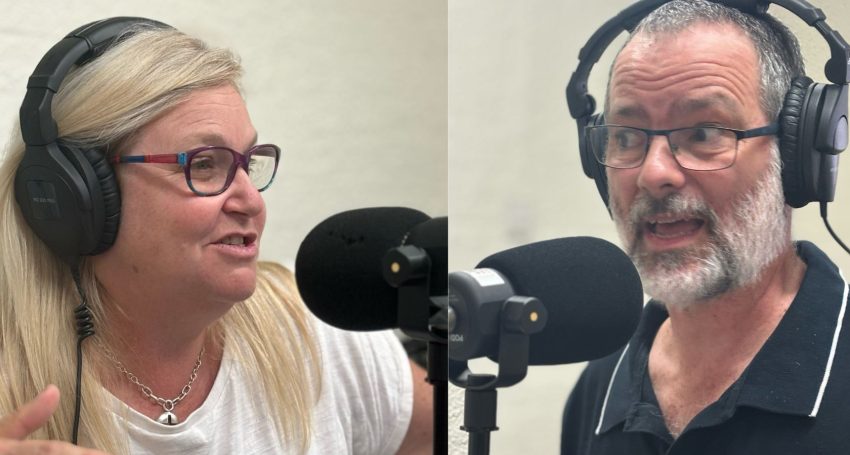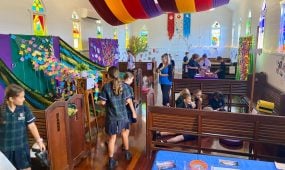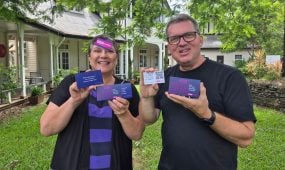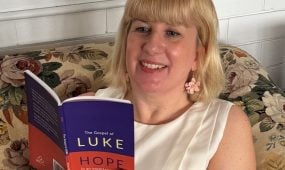Courage, creativity and collaboration to dream
Resources & Research
“It will take courage from practitioners like myself, and the communities we preach in, to be open to ways that lead into encounters with God through Christ Jesus,” says The Rev’d Michael Stalley, while introducing readers to a new podcast

I sometimes find myself finishing an intense, and admittedly, one-sided, conversation with the words “Here ends the sermon!” It is a recognition that a conversation, which started off friendly, has become somewhat “preachy”.
It is not hard for me to find that “Sunday morning mode” at other times. The preaching part of my role is in many ways the most visible of what I do and it can feel like much hangs on being good at it. There is some sense of satisfaction in feeling like you have been able to draw people’s attention and lead them to some new understanding. My “party trick” seems to be preaching without notes, which sometimes draws a level of admiration that, if I took time to reflect on it, should be directed elsewhere. I wonder if my use of “Here ends the sermon” might reflect a “dropped mic moment” as if there is nothing more to add!
Dave Csinos is an Associate Professor of Practical Theology at the Atlantic School of Theology in Halifax, Nova Scotia. He writes and speaks on topics such as children and youth, faith formation, intercultural ministry, social justice, and ministry innovation. In his book, A Gospel for All Ages: Teaching and Preaching with the Whole Church (2022), Dave Csinos sets out to bring into dialogue the missional disciplines of preaching and intergenerational ministry — to wonder what benefit might come from the engagement of those who practise these disciplines “To proclaim the Good News of the Kingdom of God”.
In some ways, Dave’s intent to bring these disciplines into dialogue mirrors my ministry as someone who preaches and has taken a deep interest in intergenerational ministry. I am aware of the ways we continue to reinforce models of preaching that tend to be one-sided and practised by specially chosen and trained people. I am aware of my desire to be part of a faith community that is more participatory and values the potential for a greater diversity of voices to proclaim the Good News.
Advertisement
I recognise in an ever-increasing complex and uncertain world the benefits of collaboration in forming community greater than I can on my own. I am coming to understand that I cannot make someone learn, but instead can be part of drawing learning out of others. And, that what is learnt should not be determined by my agenda, but by encouraging others to take responsibility for their next step as followers of Christ Jesus through the dynamic action of the Holy Spirit. The following are some of the things that reading Csinos’ book and collaborating with others in its content have stood out for me.
“Intergenerational” is not code for a “Children’s talk”! My sense of the discussion among those who are practitioners and thinkers in this area is that being intergenerational is much wider than this. It is not merely the simplifying of adult material to make it palatable for a younger audience that the rest of us have to endure for the sake of attracting families, children and youth. It is the much harder work of taking seriously the needs of everyone in the room and those who are yet to be in the room — to wonder how we do community, worship and faith formation together. This means that many a practitioner in this area, while recognising the generational differences as significant, also recognises a much wider group of ways difference is expressed in community and that this needs to be part of our consideration.
Advertisement
There is also an important distinction to be made between preaching and proclamation. Again I tend to hold tightly to the Anglican Communion Mark of Mission, “The mission of the Church is the mission of Jesus Christ: to proclaim the Good News of the Kingdom.” I understand some of the institutional need to licence suitably selected and trained people for the practice of preaching in our churches. I wonder if we were able to reclaim the idea of “proclamation” as a shared responsibility of those who are baptised, that we might indeed go a long way to taking seriously the value and contribution of each and every member of our faith communities.
It will take courage from practitioners like myself, and the communities we preach in, to be open to ways that lead into encounters with God through Christ Jesus. Courage to let go of what sometimes makes us feel good about ourselves as preachers who have honed our craft. Courage for congregations to be open to ways of being that do not prioritise one group over another or the comfort of leaving the proclamation to the “professionals”.
It will also take creativity and collaboration to dream of and live into these communities — to being willing to recognise that in our own following of Christ Jesus there is always more to be said, or experienced or known to create both certainty and trust in the faithfulness of God that we have met in Jesus Christ.
Check out series three of the Intergenerate Australia and NZ podcast Engage All Ages, which follows the material in Dave Csinos’ 2022 book A Gospel for All Ages: Teaching and Preaching with the Whole Church.





